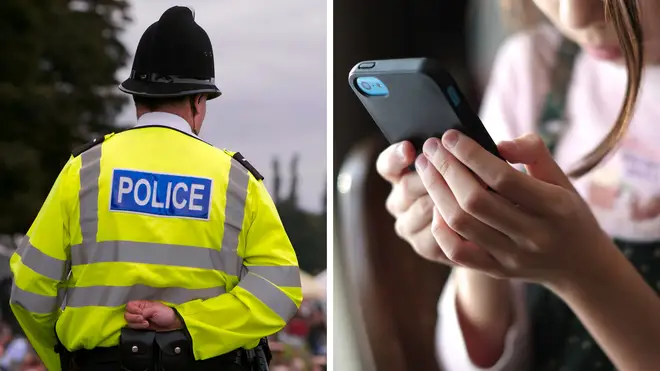
Tonight with Andrew Marr 6pm - 7pm
5 April 2023, 04:03

Police have been taking as long as 18 months to make an arrest after becoming aware that a child is at risk of online sexual abuse, a report has found.
Police forces in England, Wales and Northern Ireland often leave young children vulnerable and allow offenders to escape justice, His Majesty's Inspectorate of Constabulary and Fire & Rescue Services (HMICFRS) found.
There are often "unacceptable delays and missed opportunities" in responding to allegations and concerns about suspects, and officers have "limited tools" to understand risk, the report said.
Many officers "don't always follow lines of inquiry to find out who the suspect is and whether they are approaching children", it added.
In the majority of forces, cases reported directly to the police are followed up by non-specialists who have inadequate training and are unaware of guidance they should follow.
Read More: Met police officer guilty of raping woman and accessing his victim's restricted crime report
Very high-risk cases are often dealt with within a day but those deemed high, the report found, but medium or low risk cases are often not responded to in the recommended timescales of a week, two weeks and 30 days.
In one instance, officers did nothing for 18 months after being shown a video a nine-year-old girl being raped.
Meanwhile, in the same force, more than 30 suspects had their risk incorrectly rated as low due to inadequate training.

Officers accepted that they often do not share information when they first become aware of a child's risk because they believe a social worker visit takes priority.
The report said doing so "doesn't take account of the force's obligations" or "risks to children."
While the number of "image-related cases" being referred to police by the National Crime Agency doubled between 2017 and 2021, chief constables "are not doing enough" to get to grips with the scale of the problem, HMICFRS found.
Some forces urge officers to tell children to reset their phone to factory settings, which can lead to evidence being lost.
The inspectorate also found that some forces have "drawn up their own criteria" for which cases to pursue based on resources rather than risk.
It said the Online Safety Bill could "significantly reduce" the amount of child sex abuse material online.
Its 17 recommendations include chief constables making sure that online child sex abuse cases are allocated to people with relevant skills and training.
It also recommends forces implement plans to deal with online child sex abuse within the recommended amount of time with immediate effect.
His Majesty's Inspector of Constabulary Wendy Williams said: "There is a lack of minimum investigative standards or training, and this means some forces aren't responding quickly or sufficiently to allegations of abuse.
"Forces do not fully understand the scale of the problem, so there aren't enough resources dedicated to these investigations.
"The Online Safety Bill represents a critical opportunity to tackle the growing amount of child sexual abuse material available online.
"However, chief constables cannot wait for this to be in place. They need to do more now to understand the demand on their forces and the risks posed by offenders."